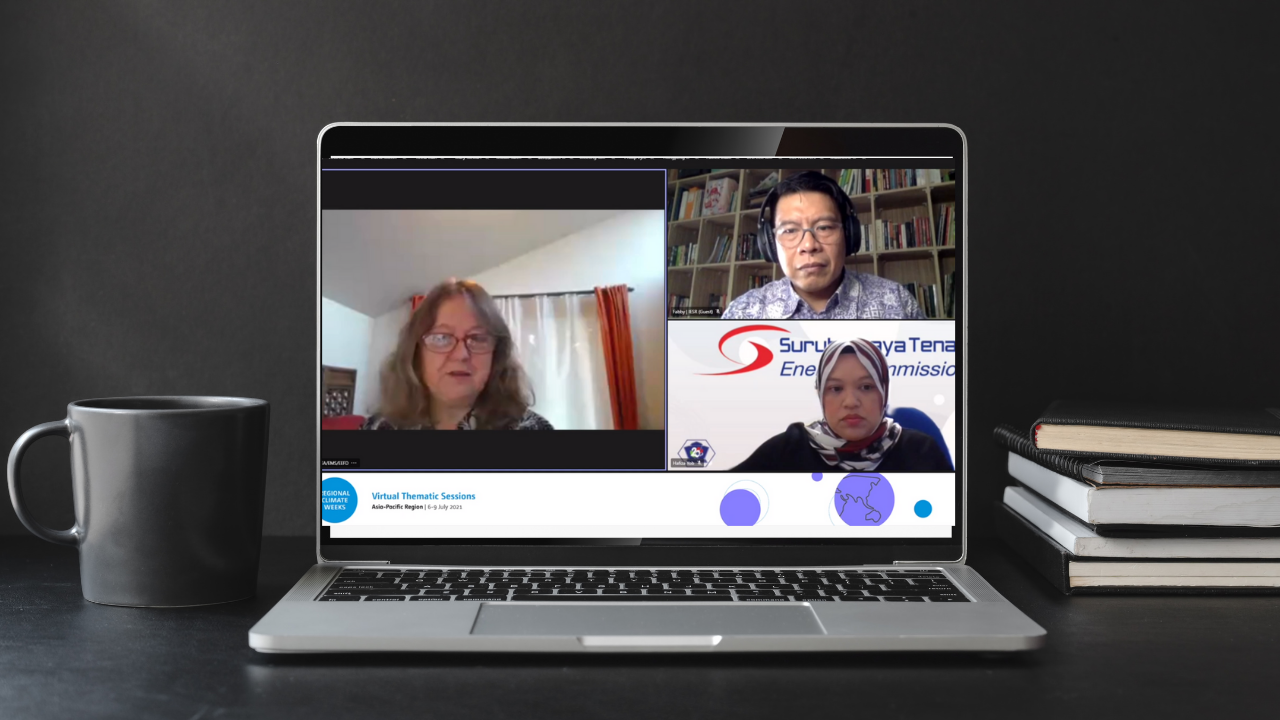Jakarta, 7 July 2021 – Energy transformation is already underway in some countries. The available technologies are getting more affordable and easy to find. The Asia Pacific is accounted for more than 50% of global energy consumption. On the other hand, about 10% of its population still do not have access to basic electricity services. The need to provide reliable energy access and keeping the commitment to move towards a net-zero energy system makes the concerned international organizations feel the urgency to discuss it.
The Asia Pacific Climate Week specifically discussed the issue of how technology and policy should be accelerated to achieve net-zero emission by 2050 without jeopardizing energy demand. Hongpeng Liu, Director of United Nations Economic and Social Commission for Asia and the Pacific, emphasized that the rise of population and economic growth means a rise in energy demand as well. Since the energy sector accounts for 65% of the GHG emissions, a strategic move is certainly needed to make sure that energy demand is met while on the other hand the emission coming from the energy sector is tightened up.
“We’ve just launched a study titled ‘Theme Report on Energy Transition towards the achievement of SDG 7 and net zero emissions by 2050’. From this study, we have eleven recommendations for all parties including governments, businesses and commercials, and also consumers.”
The recommendations include rapid deployment of renewable energy, and improving energy efficiency. It is believed that the combination of renewables deployment and energy efficiency will bring us to achieve the Paris Agreement target. Energy efficiency is considered as one of the easy ways to decrease emissions by managing the amount of energy we consume. Most electric home appliances manufacturers also produce high-efficiency home appliances such as refrigerators and air conditioners. The hanging question would be ‘how can we scale up the technology we know’
From the customers’ side, the awareness of the climate change issue makes them understand the importance of utilization of renewable energy and to do energy efficiency. These make them tend to choose high-efficiency appliances.
“The market for high-efficiency home appliances is growing in response to the awareness of climate change. Though in Indonesia, currently, the grid situation is oversupply so the government encourages us to consume more energy instead of saving one,” Fabby Tumiwa, the Executive Director of Institute for Essential Services Reform explained.
Fabby also added that the awareness of the climate change issue led to the green building development in which some new properties are now favored to be certified as green buildings.
Hafiza Yob, Senior Assistant Director of Energy Commission Malaysia explained that the market transformation is on the pipeline agenda.
“The awareness is going on, now people’s perception about high-efficiency appliances is onboard. But we still need to slash down the perception that high-efficiency equipment must be expensive. So we need to work hard to make sure that high-efficient equipment is available at an affordable price,” she said.
Government commitment to move toward net-zero emission is crucial as it becomes the base of further development plans. This was emphasized by Nguyen Cuc, National Ozone Coordinator and Deputy Head of Department of Climate Change, Ministry of Natural Resources and Environment Vietnam. “We just submitted our updated NDC that highlights several sectors such as energy, industry, and transportation. We see that government cooperation is important to scale up the technology we have right now,” she concluded.

